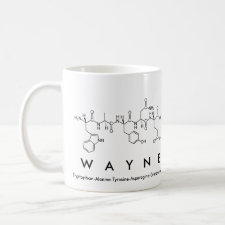
Authors: Mullett WM
Article Title: Determination of drugs in biological fluids by direct injection of samples for liquid-chromatographic analysis.
Publication date: 2007
Journal: Journal of Biochemical and Biophysical Methods
Volume: 70
Issue: (2)
Page numbers: 263-273.
DOI: 10.1016/j.jbbm.2006.10.001
Alternative URL: http://www.sciencedirect.com/science/article/B6T28-4M33P65-1/2/27f89f5afe27f4e13d998f384f1f914b
Abstract: The analysis of drugs in various biological fluids is an important criterion for the determination of the physiological performance of a drug. After sampling of the biological fluid, the next step in the analytical process is sample preparation. The complexity of biological fluids adds to the challenge of direct determination of the drug by chromatographic analysis, therefore demanding a sample preparation step that is often time-consuming, tedious, and frequently overlooked. However, direct on-line injection methods offer the advantage of reducing sample preparation steps and enabling effective pre-concentration and clean-up of biological fluids. These procedures can be automated and therefore reduce the requirements for handling potentially infectious biomaterial, improve reproducibility, and minimize sample manipulations and potential contamination. The objective of this review is to present an overview of the existing literature with emphasis on advances in automated sample preparation methods for liquid-chromatographic methods. More specifically, this review concentrates on the use of direct injection techniques, such as restricted-access materials, turbulent-flow chromatography and other automated on-line solid-phase extraction (SPE) procedures. It also includes short overviews of emerging automated extraction-phase technologies, such as molecularly imprinted polymers, in-tube solid-phase micro-extraction, and micro-extraction in a packed syringe for a more selective extraction of analytes from complex samples, providing further improvements in the analysis of biological materials. Lastly, the outlook for these methods and potential new applications for these technologies are briefly discussed
Template and target information: Review - LC analysis of drugs
Author keywords: direct injection, Analysis of biological materials, Turbulent flow, Restricted-access materials (RAM), On-line solid-phase extraction, review



Join the Society for Molecular Imprinting

New items RSS feed
Sign-up for e-mail updates:
Choose between receiving an occasional newsletter or more frequent e-mail alerts.
Click here to go to the sign-up page.
Is your name elemental or peptidic? Enter your name and find out by clicking either of the buttons below!
Other products you may like:
 MIPdatabase
MIPdatabase









